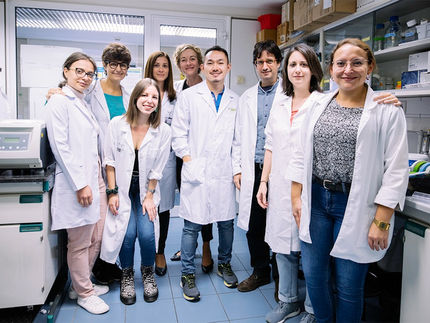Potential target for lung cancer therapy
A protein that transports the amino acid glutamine is a potential biomarker and therapeutic target for non-small cell lung cancer, researchers report.
Pierre Massion , M.D., and colleagues previously demonstrated that the protein SLC1A5 is the primary transporter of glutamine – a modulator of cell growth and oxidative stress – in non-small cell lung cancer.
In the current study, they examined the effects of targeting SLC1A5 in a panel of lung cancer and human bronchial cell lines. They demonstrated that inactivating SLC1A5 genetically or pharmacologically decreased glutamine consumption, inhibited cell growth and induced cell death in cell lines that overexpressed the transporter.
Targeting SLC1A5 function also decreased lung cancer tumor growth in an animal model. The investigators found that in patients with non-small cell lung cancer, SLC1A5 expression was associated with poor overall survival.
The findings suggest that SLC1A5 may be a useful diagnostic biomarker and potential target for certain subtypes of non-small cell lung cancer.
Original publication
Hassanein, Mohamed and Qian, Jun and Hoeksema, Megan D. and Wang, Jing and Jacobovitz, Marie and Ji, Xiangming and Harris, Fredrick T. and Harris, Bradford K. and Boyd, Kelli L. and Chen, Heidi and Eisenberg, Rosana and Massion, Pierre P.; "Targeting SLC1a5-mediated glutamine dependence in non-small cell lung cancer"; Int. J. of Cancer; 2015
Most read news
Original publication
Hassanein, Mohamed and Qian, Jun and Hoeksema, Megan D. and Wang, Jing and Jacobovitz, Marie and Ji, Xiangming and Harris, Fredrick T. and Harris, Bradford K. and Boyd, Kelli L. and Chen, Heidi and Eisenberg, Rosana and Massion, Pierre P.; "Targeting SLC1a5-mediated glutamine dependence in non-small cell lung cancer"; Int. J. of Cancer; 2015
Organizations
Other news from the department science

Get the life science industry in your inbox
By submitting this form you agree that LUMITOS AG will send you the newsletter(s) selected above by email. Your data will not be passed on to third parties. Your data will be stored and processed in accordance with our data protection regulations. LUMITOS may contact you by email for the purpose of advertising or market and opinion surveys. You can revoke your consent at any time without giving reasons to LUMITOS AG, Ernst-Augustin-Str. 2, 12489 Berlin, Germany or by e-mail at revoke@lumitos.com with effect for the future. In addition, each email contains a link to unsubscribe from the corresponding newsletter.
Most read news
More news from our other portals
Last viewed contents

Faecal Pollution: DNA Uncovers Culprit - CSI and forensics can be used to uncover not only serial killers but also the cause of water pollution
Chinese_Mental_Health_Association
Catalent Invests $7.3 Million in Italy - Expands Softgel Encapsulation and Packaging Capabilities in Support of Consumer Health

Bioluminescence - the natural glow - How glowing molecules can also be used in industry
2006 Life Science Industry Awards Finalists
Category:National_Institutes_of_Health_images
Energy sensor as potential target for cancer drugs identified
VaxGen Raises USD 79M Through Sale of Interest in Overseas Biopharmaceutical Manufacturing Facility






















































